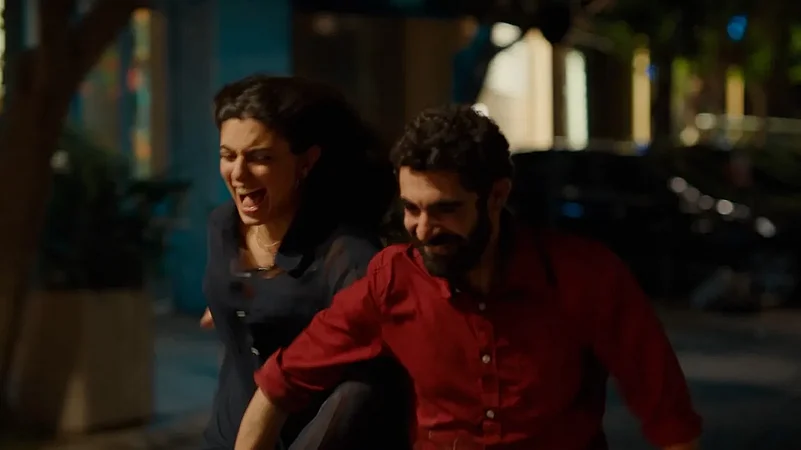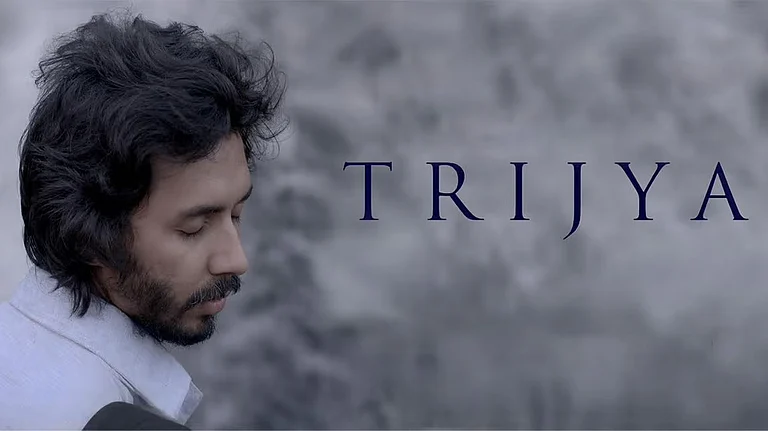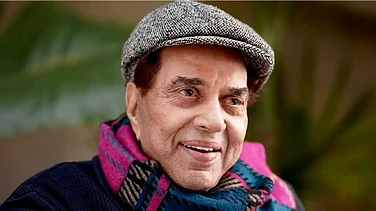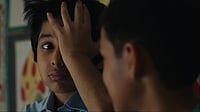
Summary of this article
Cyril Aris' debut feature shifts through three decades and crafts a rich, compelling saga of love amidst social strife
A Sad and Beautiful World achieves a bittersweet balance, juggling bright possibility in the dark
Its leads Mounia Akl and Hasan Akil charm and shatter
Cyril Aris’ A Sad and Beautiful World is one of those elegantly balanced, dreamily fulfilling films that breaks your heart and stitches it back countless times over its span. A masterfully accomplished debut, it hurtles giddily across a vivid emotional spectrum—a staggering temporal expanse where you might likely be left reeling. Without ever missing a step, Aris shifts through vicissitudes of time and the weight they exert on convictions. Windows of delight open up when you might least expect it. Yasmina (Mounia Akl) is all set to relocate to Germany, when she stumbles across Nino (a relentlessly disarming Hasan Akil), her childhood best friend, from whom she got separated at seven. The moment of realization is miraculous, electric, hitting as a mutually rekindled spark.
Yasmina is initially tentative in pursuing this relationship. She sees whatever they had as a long-ended chapter now. Surely, they ought not to clasp onto those foolish feelings they had as kids—a shared dream of taking off for an allegorical island that would be far from troubles erupting all around them. But his impetuous charm seems impossible to resist. The fortuitous, recurring meeting of the two, across decades, feels almost cosmically ordained. They could just as well call themselves soulmates and get away with it. Aris fills this film with light, laughter and hope, even as darkness and doom are always peeping out. For every terrible twist of fate, social churn, there’s music and dance, holding onto a sacred faith in radiant change. Nino’s optimism, despite shards of recklessness, becomes critical to even out Yasmina’s cynicism.
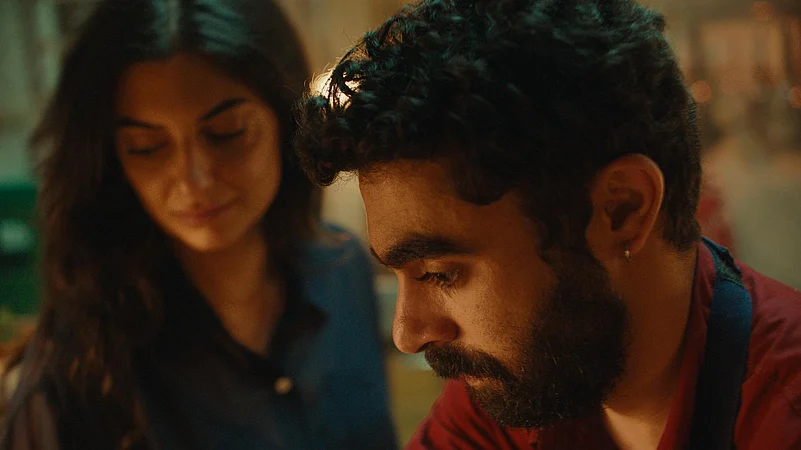
When she runs into him after all these years, she is taken aback at the rhythm of his routine, asking if his life is always so intense. Though Nino lost his parents in the very violence ripping apart Lebanon in intensifying degrees through the years, he doesn’t cede all faith in his homeland. He devotes his life to running his parents’ restaurant, sticking around while friends and loved ones leave the country for safer shores. He almost seems to thrive in volatility, not scared off or ever taking a reality check as Yasmina does. She cannot deal with such a tempestuous daily survival. She’s more bitter and distrusting of the country’s bouncing back from its escalating disarray. It’s also why she’s against bringing a child into this world, as riddled with terrifying uncertainty as it is.
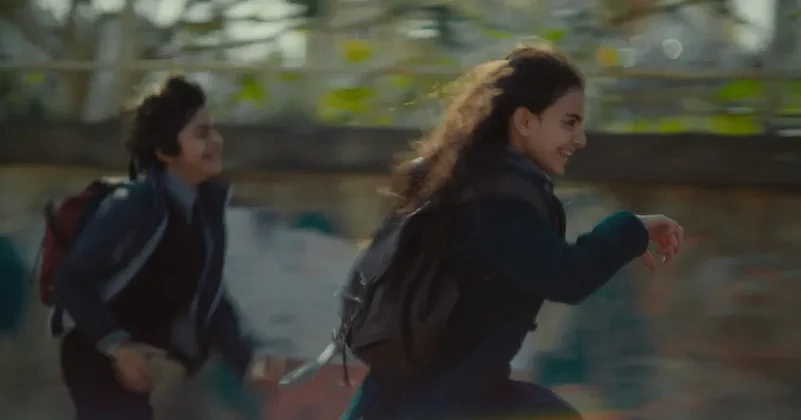
Yasmina has long endured ugly spats between her parents. Their separation has wounded her enough already to erode any belief that she might instead have a more sincere, loving marriage with Nino. How can she be sure that they won’t inevitably turn into a mirror image of her embittered parents? Scarred by parental collisions, coming of age in a country poised forever on the anvil of annihilation—where Israeli military shelling and massacres are an everyday encounter—has bludgeoned her into numb acceptance of horror and strife as the gospel way of life in Lebanon. No good can possibly come of continuing to stay here, weathering sustained chaos. There’s madness and disruption all around, as Lebanon keeps collapsing. Yet, barely buoyed by Nino’s steady sunniness, Yasmina hangs around, considering choices she had never entertained. Akl excellently puts forth her crippling lack of faith, her impulse to quickly secure herself from disaster, even if it entails staving off happiness and meaningful love.
Nino chooses to be hopeful, welcoming the thought a better tomorrow awaits. He’s stuck in the memory of the place, the glorious hubbub, the vitality the country once had, whereas Yasmina sharply senses the great danger lurking at every corner. It’s this radical affirmation of hope, trumping circumstance and history’s mercilessness, that is central to A Sad And Beautiful World. Through dazzling, nimble tracking shots, DP Joe Saade brings unbridled gusto and adrenaline. His camera has this ebullient energy that knows when to dance alongside these lived-in, wondrously unembellished characters, and when to be dearly still. It arms Aris’ leaps through spaces, time, crests and dips in a relationship’s spirit. Akl and Akil are cheeky, endearing and wrenching.
Even when it seems impossible to spot grace and resurgent possibility, there’ll always be pockets of it. Mixing tender whimsy and ricocheting emotional dimensions, A Sad and Beautiful World flows with overwhelming unpredictability. It recognises the briskest curves life can take but never surrenders to bleak defeat. In doing this, Aris laces a kind of political resistance. He places two characters with deeply disparate belief-systems in malleable conversation. How do they, with their differences, meet at someplace kinder? Is it even possible when the history of the land they belong to keeps cueing a split and departures well before their time? A capacity to evolve beyond prior assumptions is trusted within the film’s schema. Nino’s hopefulness can be almost too oblivious, adrift in its own fantasy; whereas Yasmina is wholly shorn of promise within. Both grow to temper each other, guided by Aris’ expansive, soft intelligence. At what point do we let go of our positions, flinging towards the unknown newness without betraying all that we have loved? With precisely delineated characters, an eye for staging moments of ecstatic intimacy and heart-smashed parting with equal dramatic power, Aris glues his film together through the sublime and the grim. A Sad and Beautiful World is a true stunner—a glorious emotional whirlwind.
A Sad and Beautiful World premiered at Venice Days/Giornate degli Autori, the independent parallel section of the Venice Film Festival.



